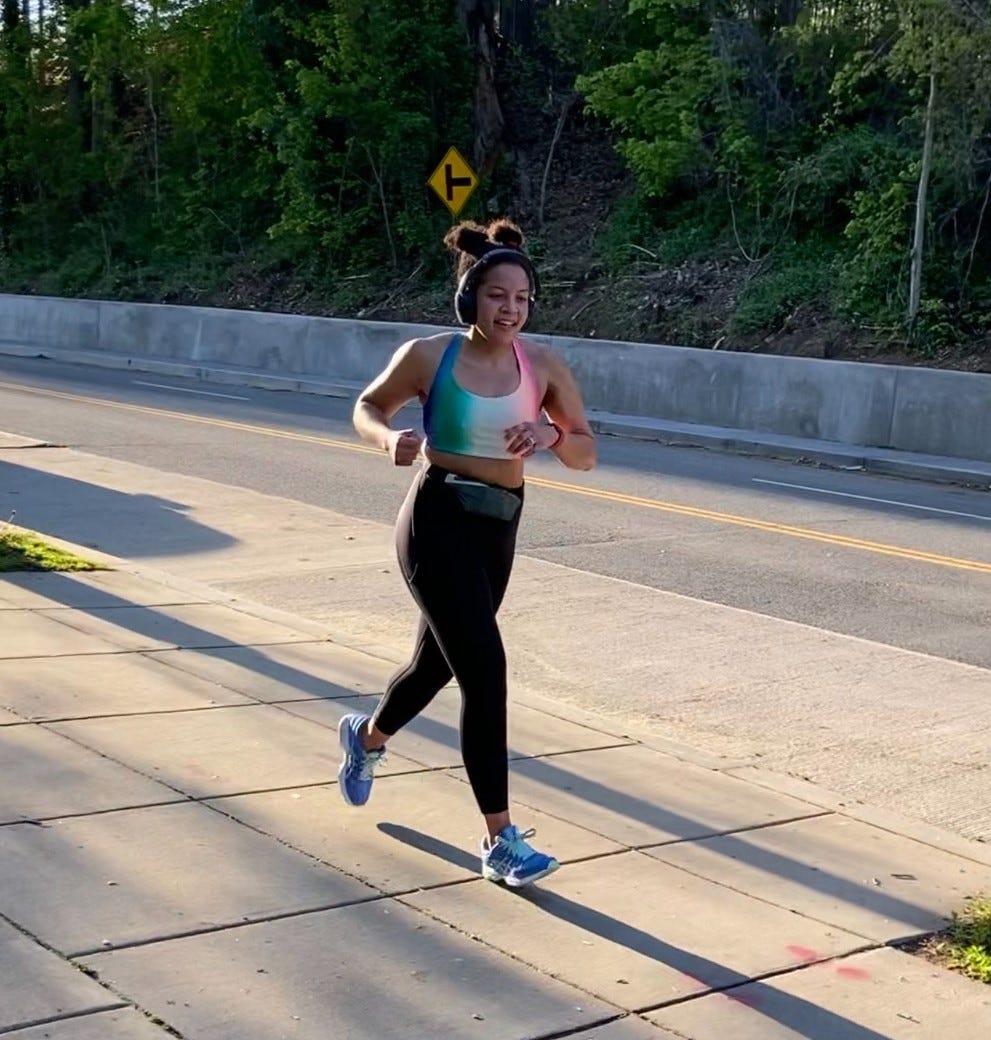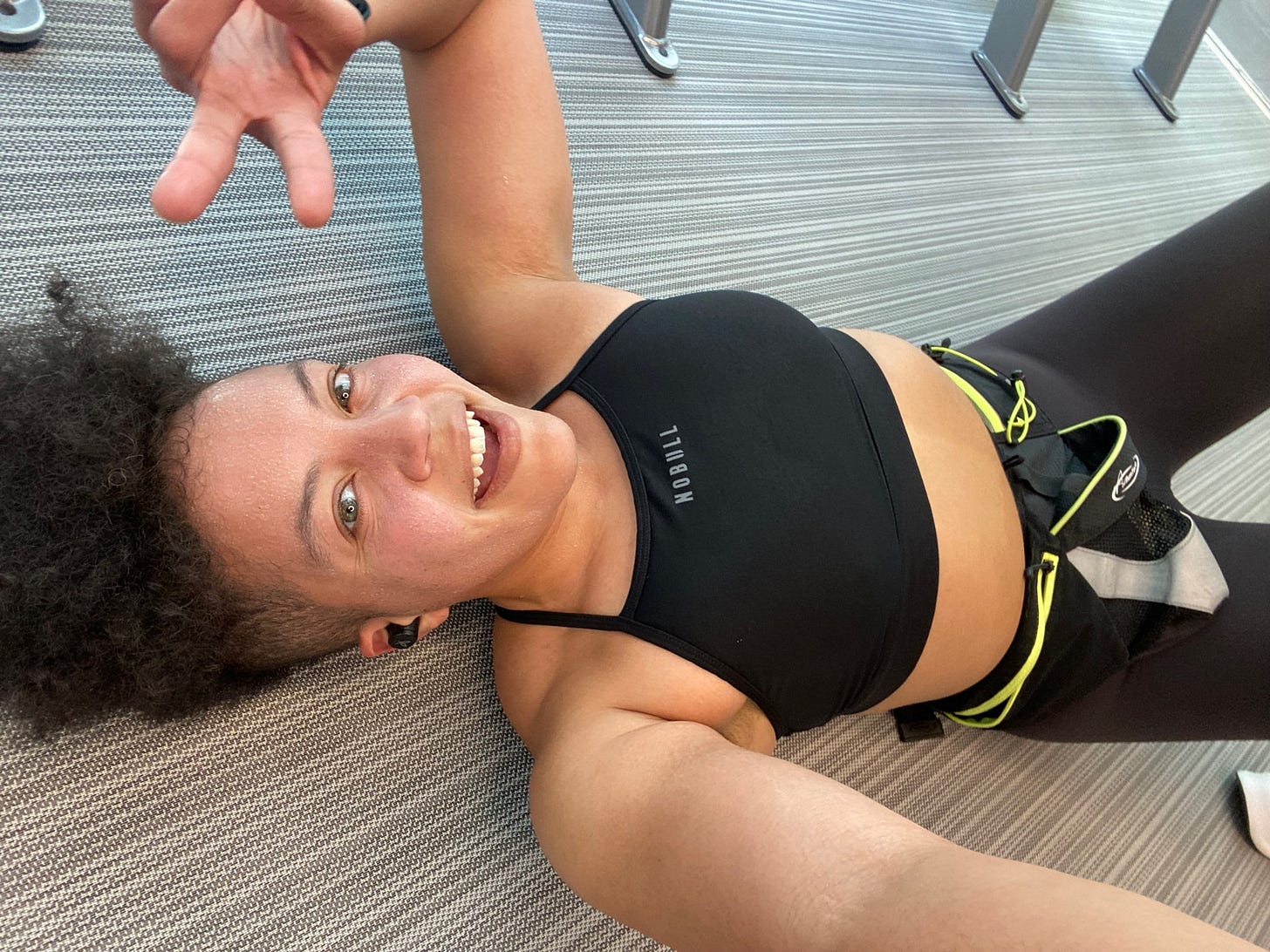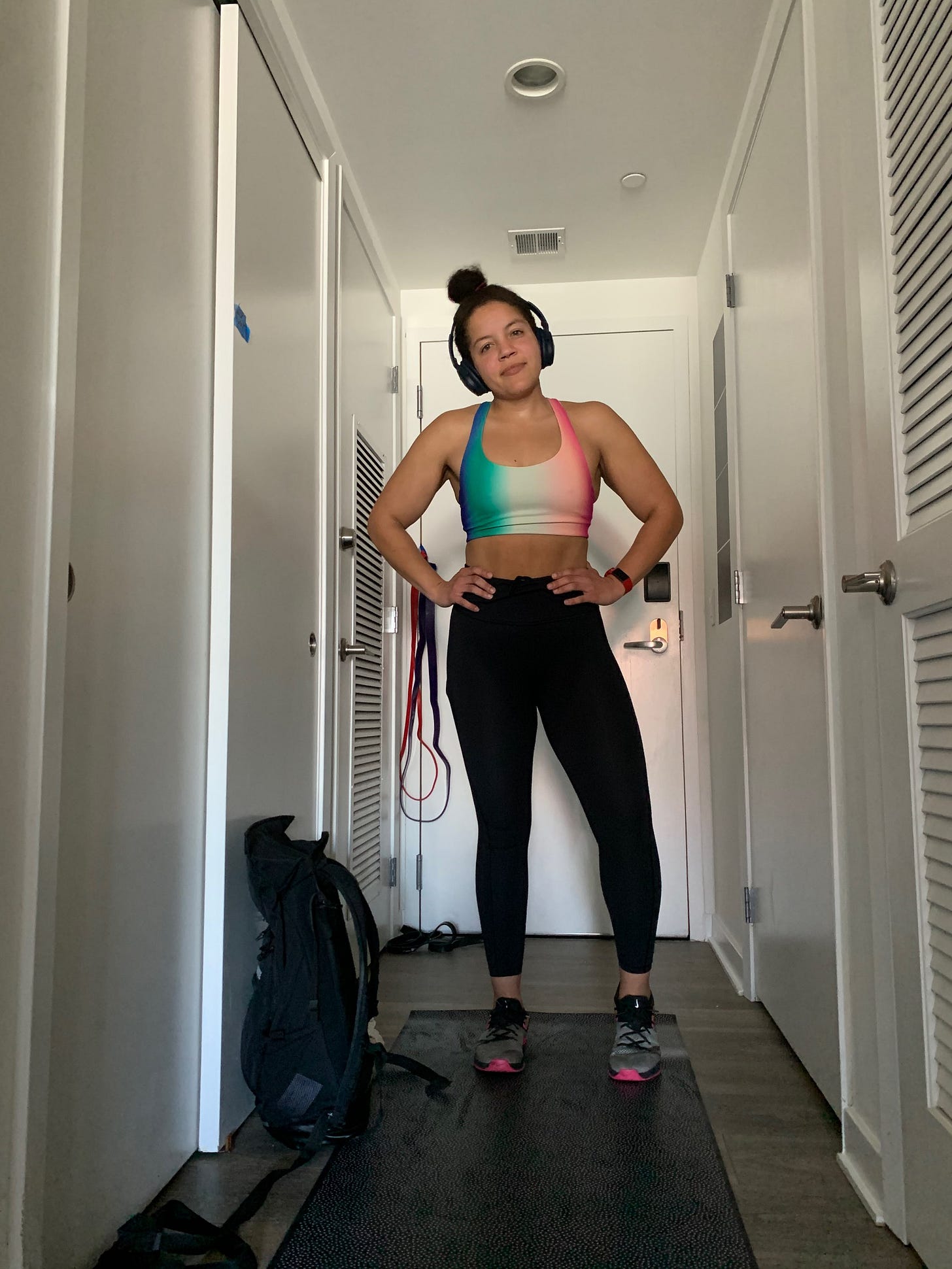The Reach Out: Jane Coaston
The New York Times columnist and host of 'The Argument' podcast runs, jumps, lifts, and walks (a lot!). There is a method (or two) to her workout madness.
Jane Coaston is a New York Times columnist and host of the podcast, The Argument. She previously served as the senior politics reporter at Vox.
Coaston has appeared on MSNBC, CNN, and NPR, and her writing has appeared in The Washington Post, National Review, The Ringer, and ESPN Magazine. She is a former resident fellow at the University of Chicago’s Institute of Politics.
I spoke with Jane Coaston about her very intense and dedicated exercise regimen.
I already know that you’re a fitness fanatic. What is your workout routine like now?
I used to work out twice a day, but now it's more like one long workout. Twice a week, I work out with a trainer, Craig Hoffman. We lift weights, do a lot of agility work, and focus on my goals. Sometimes that means improving my running speed, and other times it’s increasing strength, like building toward a bigger deadlift or a heavier bench press or back squat.
I also follow a progressive overload weightlifting program called Paragon Training Methods, and I do a kind of CrossFit-style metabolic conditioning workout, which includes things like dumbbell thrusters or box jumps.
On Mondays, Wednesdays, Fridays, and Saturdays, I focus on strength and conditioning; Tuesdays will be sprint workouts; and on Sundays, I often throw in extra intervals because I enjoy doing them so much.
I try to get 20, 000 steps by going for a two hour walk every day. I live in Navy Yard in Washington, DC, and there are so many walking paths along the Anacostia River. There are actually still times when I find myself somewhere I've never been before.
What do you listen to while exercising?
When I walk, I’ll listen to podcasts to prep for work, so that might be a book or an interview. But I also listen to True Crime podcasts like Dateline. I could listen to Keith Morrison talk about true crimes in Idaho all day long.
In 2020, when I ran a virtual half-marathon — the first time I’d ever run any kind of real distance — what I discovered is that I hate it when a song ends while I’m running. So now I’ll listen to electronic dance music — a long show like the Ultra Music Festival — because I know that it will go on for hours!
When do you exercise during the day?
I have a 9:30 meeting every morning, so workouts with my trainer are at 7am. But I’m trying to prioritize recovery and rest more because I know that if I want to get stronger, I have to eat a lot and sleep. So sometimes I will sleep until eight, have my meeting, and then work out later.
Did the pandemic change your workout routine at all?
One thing that changed for me is that I got more into running. I know a lot of other people started running because it was one of the few forms of exercise we could do.
My apartment gym wasn't open during the pandemic, which was hard because I missed weight lifting, so I was very grateful when it reopened.
Prior to COVID, I had joined a gym in D.C called Cut Seven, which had really great high intensity training workouts. During the pandemic, they streamed these workouts via Zoom, so I would do burpees in my hallway and attach resistance bands to the closet door.
What motivates you to exercise so intensely?
I was extremely overweight as a kid — like 300 pounds at age 15 — so obviously weight and appearance is a motivation. But for me, I know that I’m just a better person when I work out. I'm easier to be around, I’m more productive, and my work is better.
Exercising is how I deal with anxiety about work and deadlines, whether it’s finishing a book before I speak with the author, or hosting a podcast. I may feel stressed beforehand, but after my workout, I’m the opposite — I’ll be like, “Ok, I can do all of this now.”
I remember reading that Jerry Seinfeld uses a productivity method called “Don't Break the Chain" -- doing something over and over, becoming more motivated as you increase to X number of consecutive days, until you’ve developed a routine. I’ve found that to be a really helpful concept in terms of fitness.
You mentioned your daily step count. I imagine you wear a fitness monitor.
I like being in control of what my body is doing, so I have a FitBit because I like to know what my heart rate is, and a Whoop to track my sleep and recovery. I like having these data points, even though I know that some of it is a bit arbitrary. For example, when I’m doing a podcast, I tend to gesture with my hands when I talk, and more than once, my Fitbit has informed me that I just swam for ten minutes. So fitness devices are not perfect, but I still find them to be helpful. I also track what I eat because for me, that’s as natural as brushing my teeth.
Is there a fitness activity that you might want to try?
Absolutely. I think it would be cool to try gymnastics again. I liked gymnastics as a kid, but I always believed I had to be an elite athlete by age ten. Well, today I can still do a handstand, a cartwheel, and a roundoff, so I think it would be a lot of fun. But I can’t go backwards — no backwards rolls or back handsprings. For some reason, I hate going backwards.
I considered playing on a soccer team last year, but with games starting at 7:30pm, and me going to bed at 9:45, that was not going to work.
Thank you, @janecoaston
I could hear the passion and enthusiasm in Jane’s voice when she spoke about working out. This is someone who genuinely loves loves exercise!
Please subscribe (it’s free!) to read about how familiar faces keep active and fit.😀
If you enjoyed this interview, please share it on social media.
Please follow me on Twitter @The_Reach_Out







